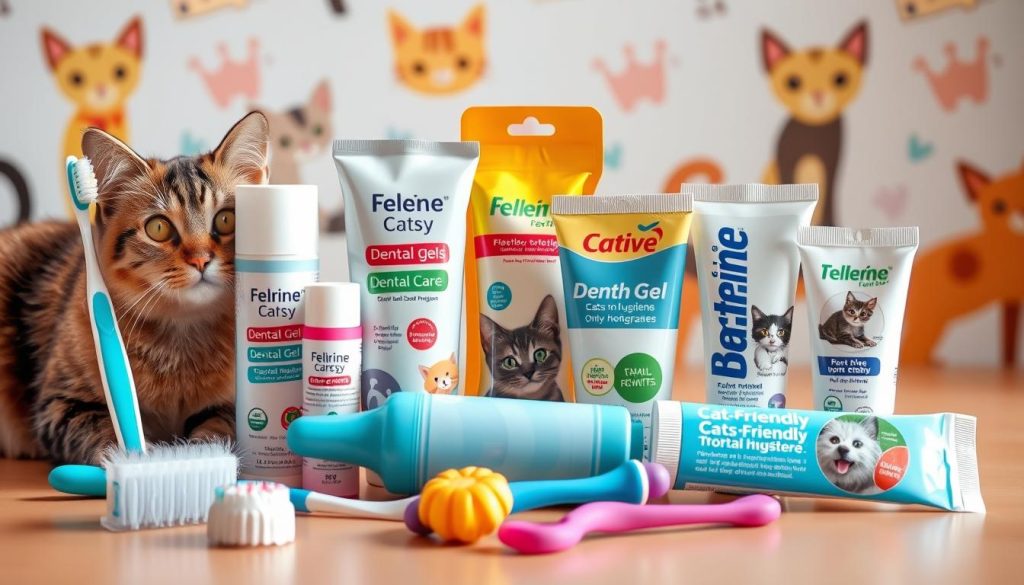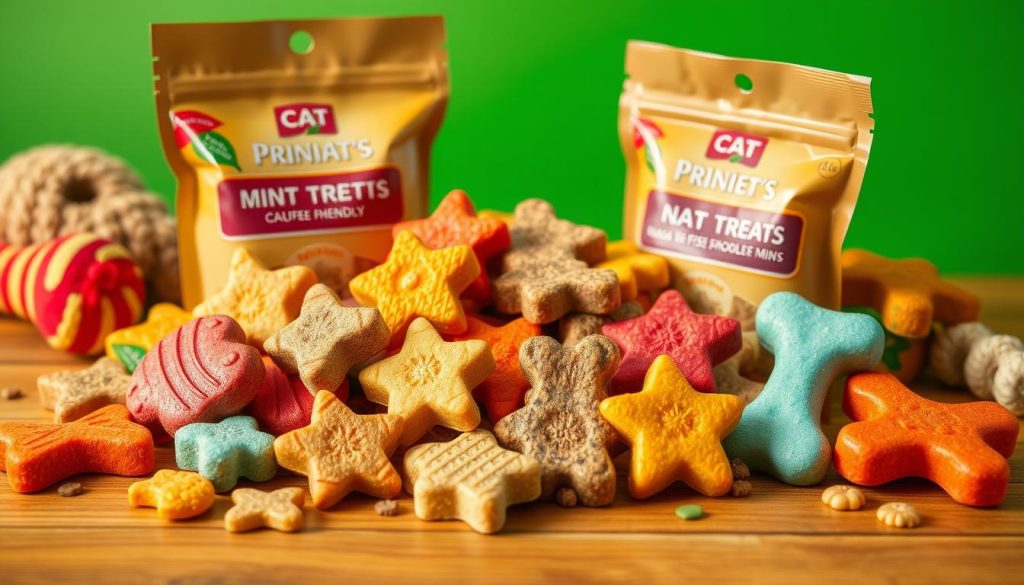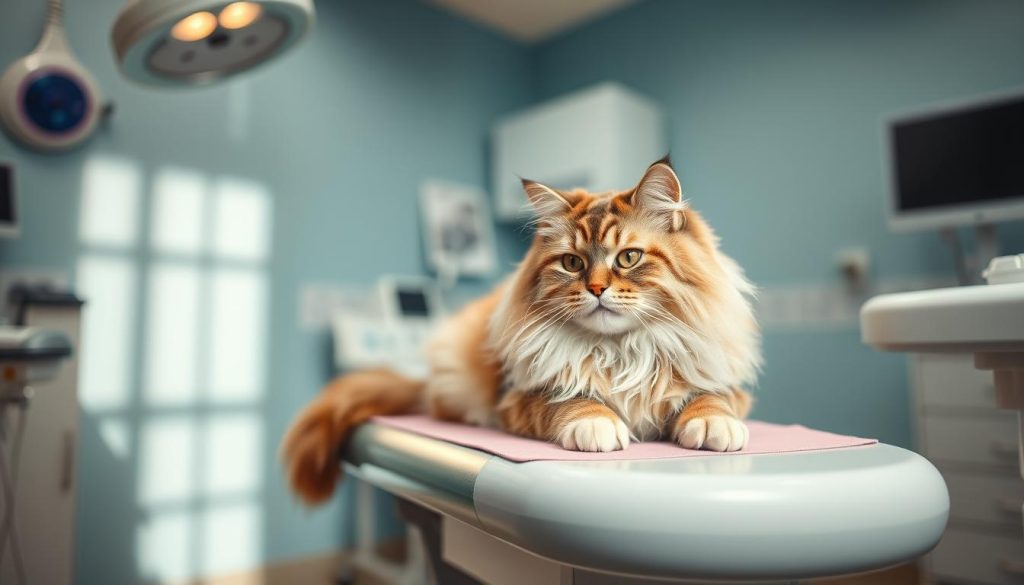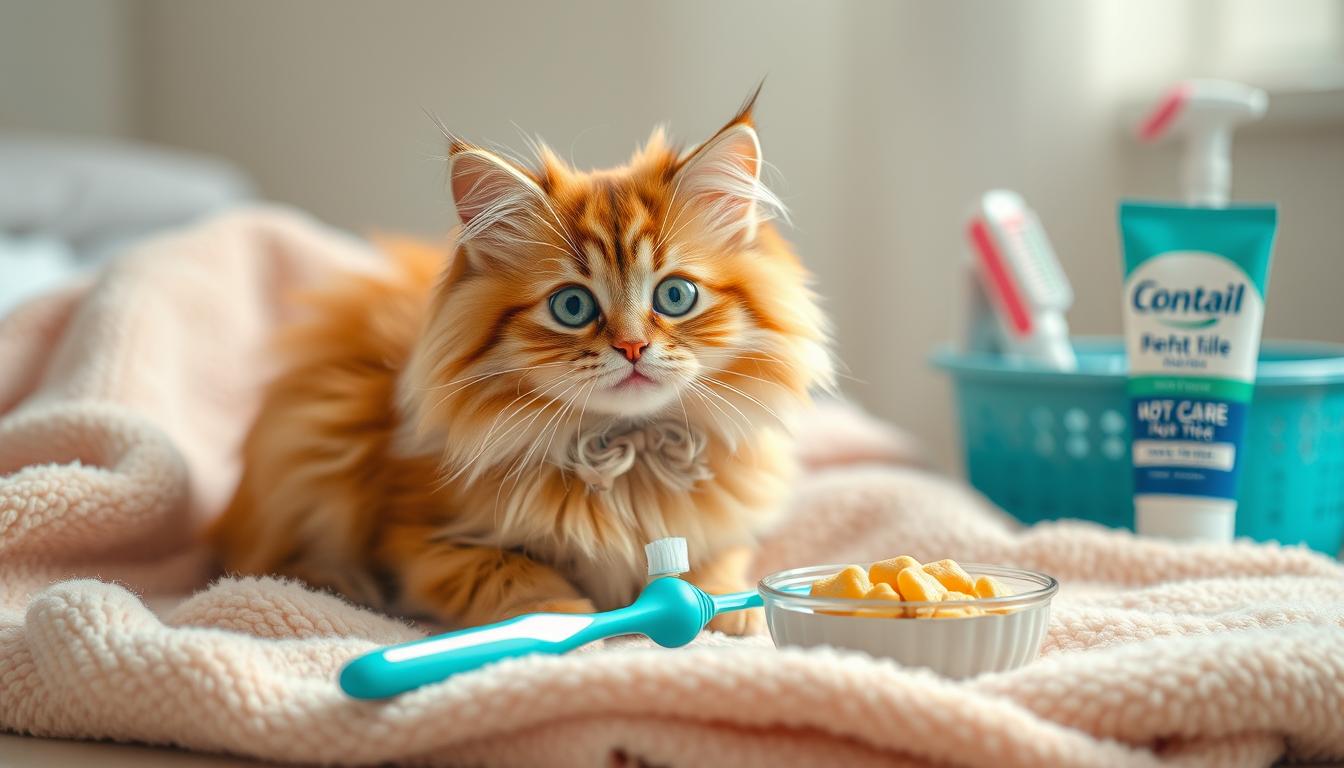As a cat parent, taking care of your feline’s dental health is key. Cats can face many dental problems, like plaque, gingivitis, and even tooth loss. In this article, I’ll share tips to keep your cat’s teeth and gums healthy for life.
Keeping your cat’s teeth clean is vital for their health. Good dental care can stop pain, help them eat better, and even add years to their life. By brushing their teeth regularly and knowing common dental issues, you can keep their smile bright and healthy.
Understanding the Importance of Cat Dental Care
Good dental hygiene is key for cats. Poor oral health can lead to many health problems. I’ll explain why dental care is vital for cats and discuss common issues like tartar buildup, gingivitis, and tooth decay.
Why Dental Health Matters for Felines
Cats face many dental problems. Neglecting their oral health can cause severe issues. Regular dental care prevents pain, tooth loss, and infections that can harm the kidneys, liver, and heart.
Common Dental Issues in Cats
Cats often deal with several dental problems:
- Tartar buildup: A hardened deposit of plaque that can irritate the gums and lead to gingivitis.
- Gingivitis: Inflammation of the gums, which can progress to more severe periodontal disease if left untreated.
- Tooth decay: Cavities and other forms of tooth decay can cause pain and discomfort for your cat.
- Tooth resorption: A condition where the tooth structure breaks down, leading to tooth loss.
- Stomatitis: Severe inflammation of the entire oral cavity, which can be extremely painful for your cat.
Regular dental cleanings and at-home brushing can prevent and manage these issues. This ensures your cat’s comfort and health.
Establishing a Regular Brushing Routine

One of the best ways to prevent dental problems in cats is to establish a regular tooth brushing routine. I’ll guide you on how to get your cat used to tooth brushing. I’ll also recommend the best feline-friendly toothbrushes and toothpastes.
Choosing the Right Toothbrush and Toothpaste
Choosing the right tools is crucial for brushing your cat’s teeth. Look for a soft-bristled toothbrush made for cats. Their gums are delicate and need a gentle touch. Don’t use human toothbrushes, as they’re too harsh.
Also, pick a cat-safe toothpaste without fluoride or harmful ingredients. These pastes are flavored with poultry or seafood. This makes brushing more enjoyable for your cat.
- Choose a soft-bristled toothbrush designed for cats
- Select a cat-safe toothpaste with a pet-friendly flavor
- Avoid using human toothbrushes or toothpaste
| Product | Description | Price |
|---|---|---|
| Petrodex Dental Kit for Cats | Includes a soft-bristled toothbrush and cat-friendly toothpaste | $6.99 |
| Arm & Hammer Dental Care Kit for Cats | Features a finger-friendly toothbrush and baking soda-based toothpaste | $8.99 |
| Vet’s Best Dental Gel Toothpaste | Enzymatic formula with natural ingredients like gum, aloe, and neem | $5.49 |
By brushing your cat’s teeth regularly and using the right tools, you can keep their teeth healthy. This prevents plaque, gingivitis, and tooth loss. Start slow, be patient, and make it a positive experience for your cat.
Providing Dental-Friendly Treats and Chews

Regular brushing is key, but dental-friendly treats and chews also help. They remove plaque and tartar. They’re a great way to add to your cat’s dental care.
Dental-friendly treats and chews come in many shapes and sizes. Some help scrape away plaque and tartar. Others encourage chewing, which is good for gums and teeth.
When picking dental-friendly treats and chews, look for the VOHC seal. This means the product has been tested and works well for dental health.
You can also add natural snacks like raw carrots or apple slices. These crunchy snacks help remove plaque and make saliva. Saliva helps fight harmful acids in the mouth.
- Look for VOHC-approved dental-friendly treats and chews
- Incorporate natural crunchy snacks like raw carrots or apple slices
- Introduce new treats gradually to monitor your cat’s reaction
- Always supervise your cat when they are enjoying dental-friendly treats
While dental-friendly treats and chews are helpful, they shouldn’t replace brushing and vet visits. A complete plan is best for your cat’s oral health.
Cat Dental Care: Professional Cleanings and Exams

Regular dental care at home is key, but your cat also needs vet visits for teeth cleaning and checks. I’ll talk about why these vet visits are important and when your cat might need extra dental care.
Signs Your Cat Needs Dental Attention
It’s vital to watch your cat’s dental health since they can’t tell you when they’re in pain. Here are some signs your cat might need a vet’s dental check and cleaning:
- Bad breath: Persistent bad breath can be a sign of dental disease or tooth decay.
- Difficulty eating: If your cat is struggling to eat or avoiding their food, it could indicate dental pain.
- Drooling: Excessive drooling can be a sign of dental issues or discomfort.
- Swollen or red gums: Inflamed gums can be a sign of gingivitis or other dental problems.
- Yellow or brown tartar buildup: Visible tartar buildup on your cat’s teeth is a clear indication that a professional cleaning is needed.
If you see any of these signs, get a vet appointment fast. This can help prevent bigger problems.
The Importance of Professional Dental Cleanings
Regular dental cleanings by a vet are crucial for your cat’s oral health. Your vet will clean your cat’s teeth, remove tartar, and check for dental disease. This keeps their teeth and gums healthy and prevents serious issues like tooth loss or infections.
Your vet might also suggest other dental treatments, like tooth extractions, based on your cat’s dental health.
Home Remedies and Natural Solutions
There are many natural ways to help your cat’s teeth. We’ll look at safe options like herbal supplements and essential oils. These can be added to your cat’s dental care routine.
Safe and Effective Natural Dental Care Options
Coconut oil is a good choice for natural dental care. It fights plaque and bacteria in your cat’s mouth. Rub a bit of virgin coconut oil on their gums and teeth with a soft toothbrush or finger.
Adding peppermint or eucalyptus essential oil to their water is another option. These oils can make their breath fresh and support their dental health.
Green tea and aloe vera are also good for your cat’s teeth and gums. They have antioxidants and anti-inflammatory properties. These can help prevent gum disease and reduce inflammation. Always talk to your vet about how much and how to give these supplements to your cat.

